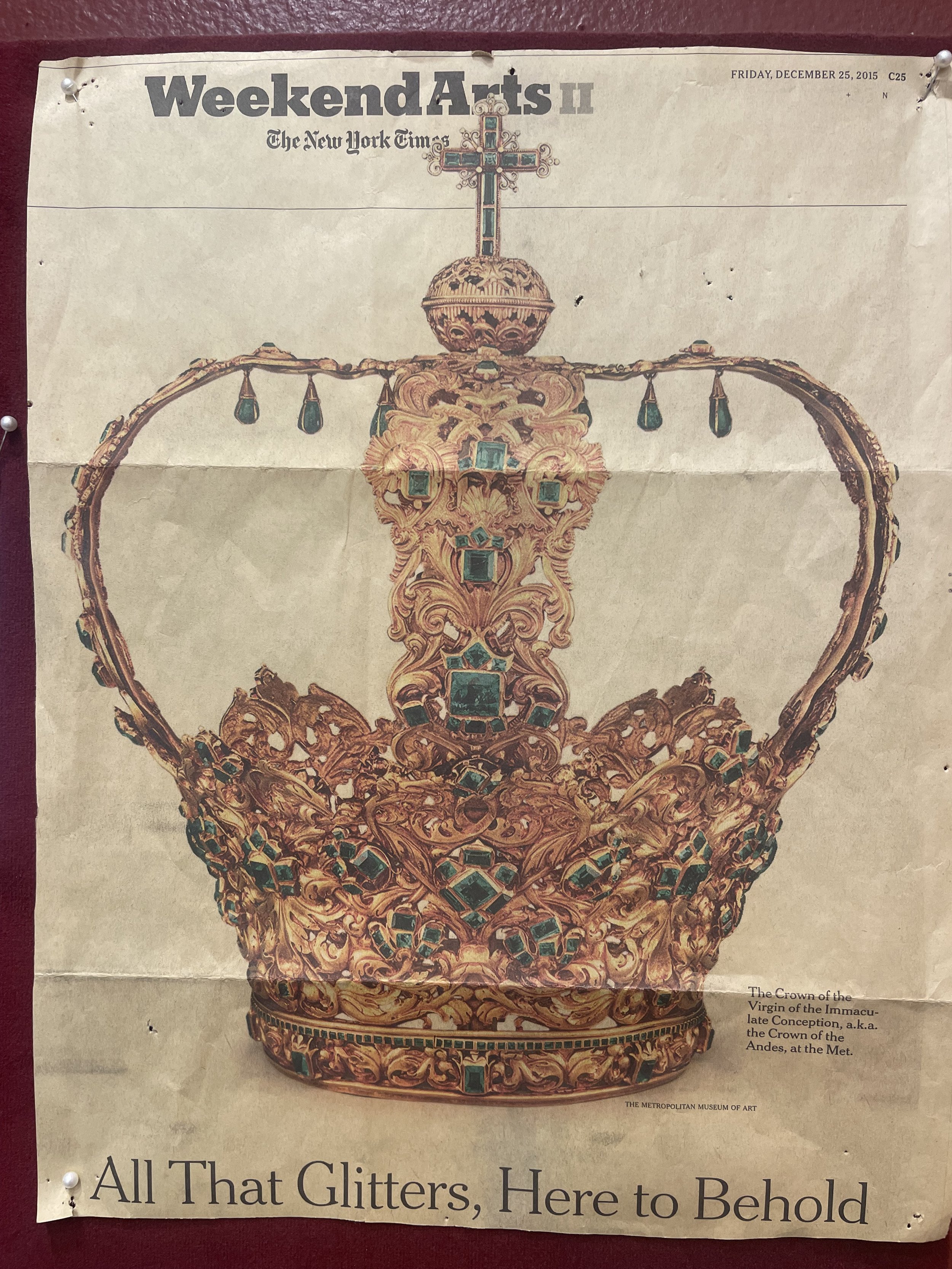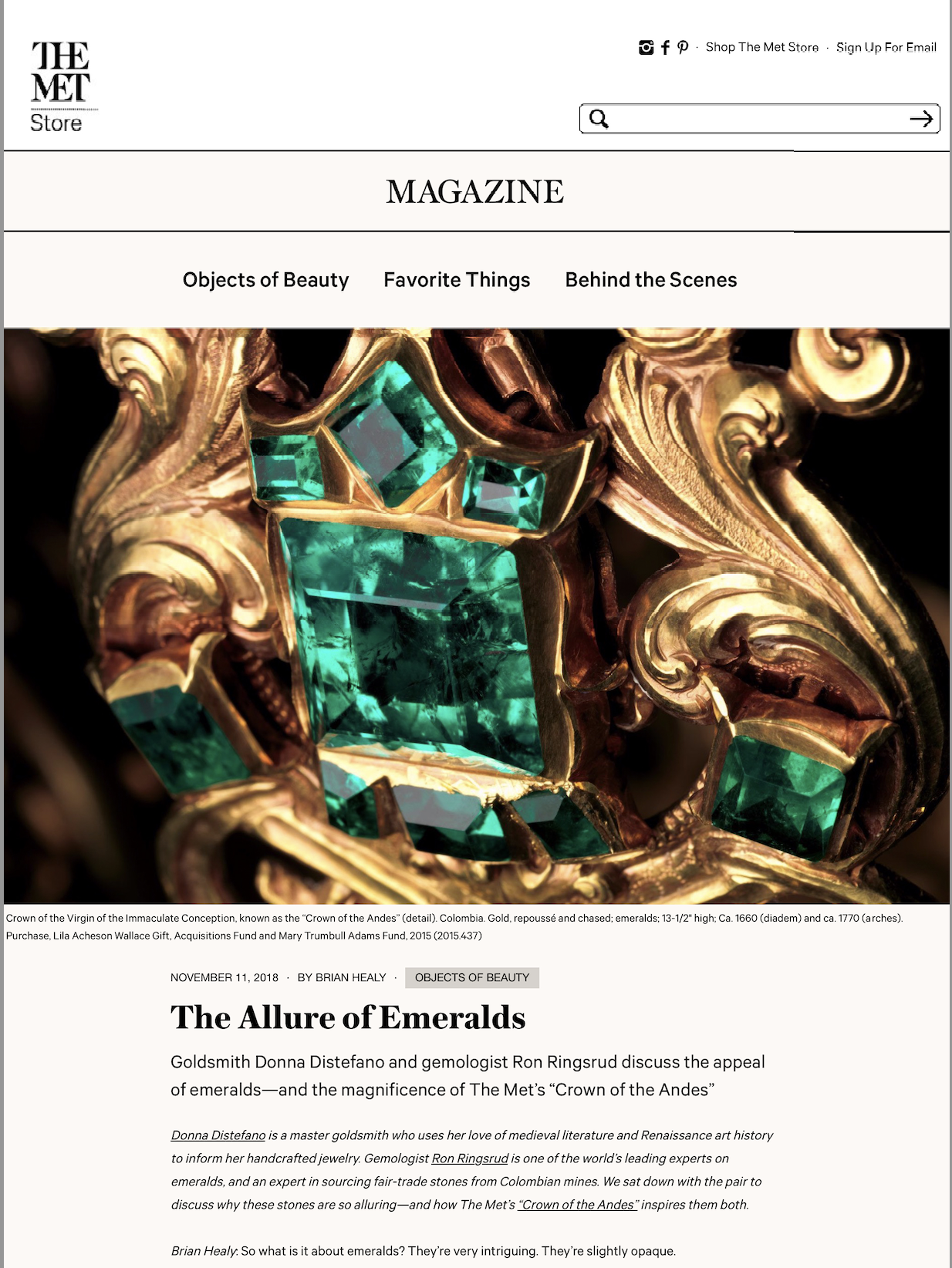Crown of the Andes Cross
Made of 22-karat yellow gold and glistening with Colombian emeralds this pendant is a reproduction of the cross that sits atop 17th-century masterpiece, The Crown of the Andes, aka The Crown of the Virgin of the Immaculate Conception at The Metropolitan Museum of Art. Read more here by curator Ronda Kasl:
https://www.metmuseum.org/art/online-features/metcollects/crown-of-the-andes
Donna Distefano Crown of the Andes Cross, 3.70 carats of Colombian emeralds, 2-1/4” long, intricately set in 22 karat gold originally commissioned by The Metropolitan Museum Store in 2017 based on The Crown of the Virgin of the Immaculate Conception.
When The Met acquired the crown in 2015, I was so enamored with its beauty and power, I pinned an image of the crown to the mood board that hovers over my desk chair. In 2017 when I was asked to recreate the piece for exclusive sale in their store and I was asked if I'd heard of the crown, I said, why yes! It sits above my head.
To do what we do as goldsmiths-to take part in history and gain access to some of antiquity's most beautiful creations- is nothing short of a privilege. I think my friend Ron Ringsrud (@eyesonjupiter on IG and the supplier of the piece's breathtaking emeralds) said it best in his book, Emeralds, A Passionate Guide. About the crown, he writes, ‘it can only be hoped that this fine rarity will surface again and bless the crowds with its regal and religious power'. During the promotion of my jewelry collection, Ron and I were interviewed for Met Store Magazine.
In 2018 my very special emerald collection went on display in the museum gift shop and sold out after a NY Times feature in November 2018.
Originating from Colombia, the crown was made by the Spanish church out of Pre-Colombian gold and adorned with emeralds from the area. The Spanish were surprised to find a rich and complex goldsmithing tradition among the indigenous people of South America.
The crown on which this cross was situated was a gift for the cathedral of Popayán (Colombia), and was intended to sit atop the head of the statue of the Virgin Mary installed therein. It was a remarkable achievement at the time and a symbol of that which made the region wealthy and successful.
The Crown of the Andes was made of pure gold and emeralds. It was thought to have cured the town of Popayán, Colombia of the plague in 1590. It is a goldsmith's dream with embellishments and handwork by over 24 goldsmiths made c.1660-1770. It is steeped in history that includes over three centuries of religious worship in Popayán. It's even said to have been captured by pirates, survived an earthquake in 1906, and was part of the 1939 Worlds Fair.
Crown of the Andes as a centerpiece of a dinner, Cleveland, Ohio 1936.
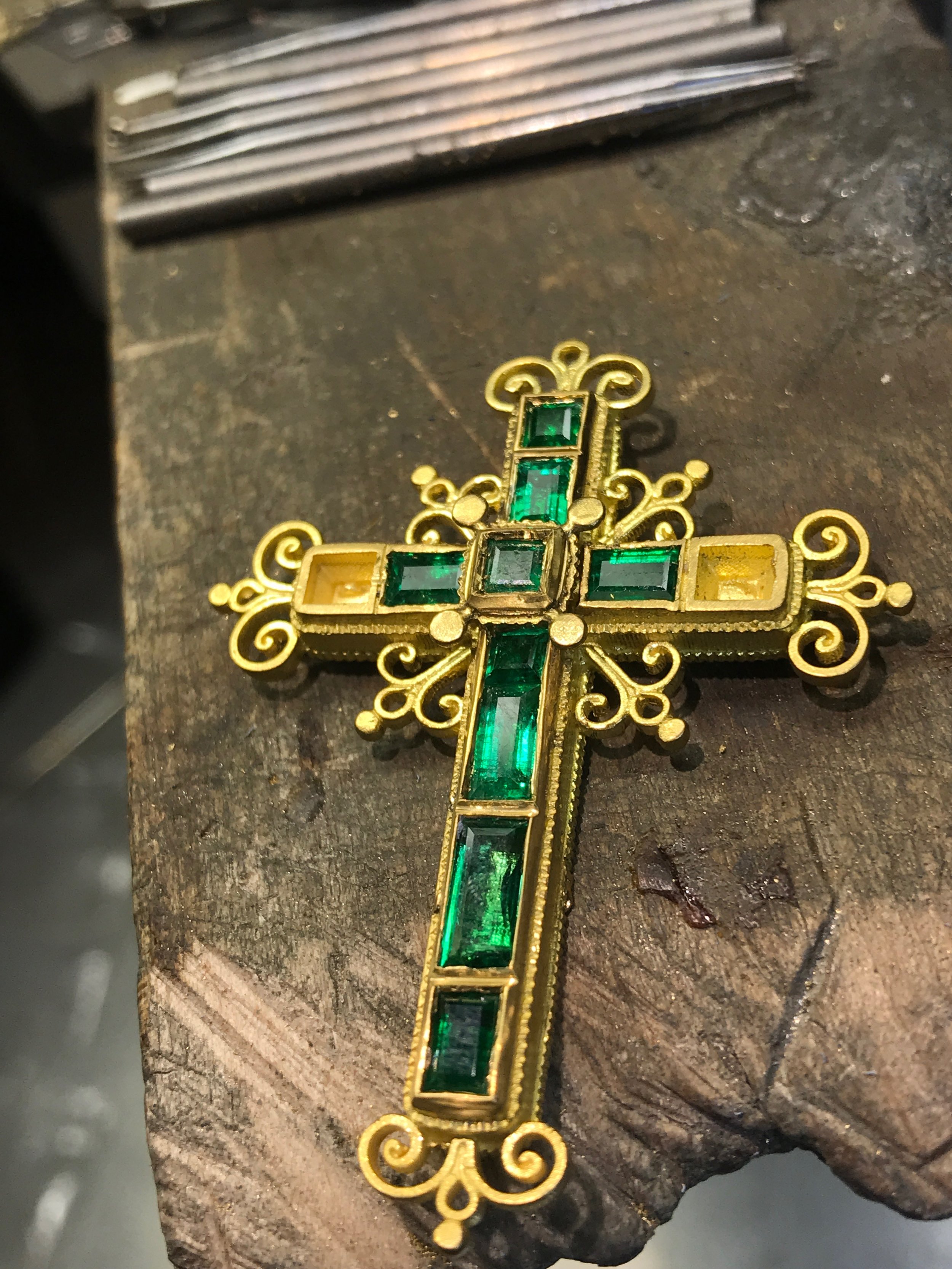
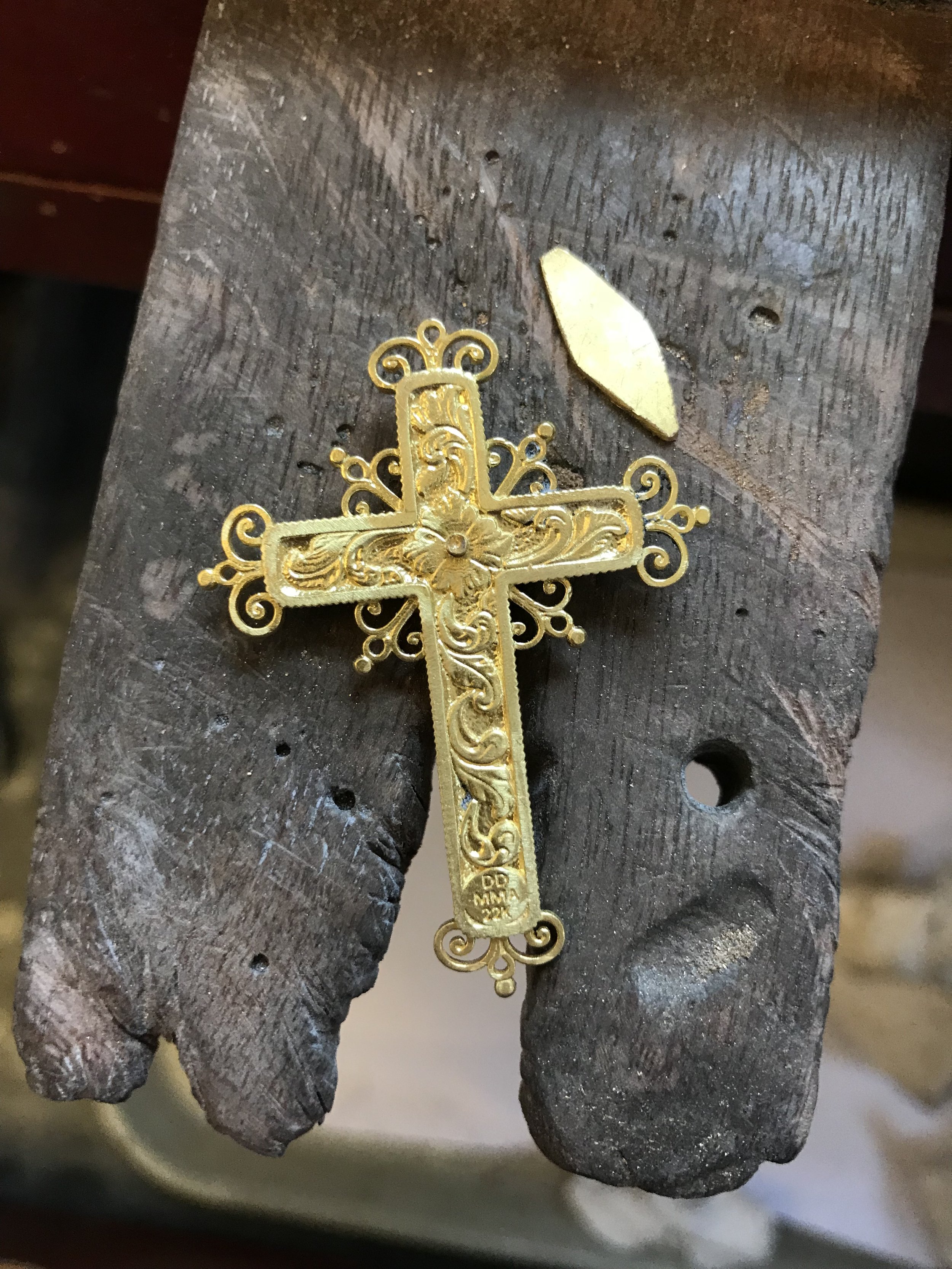
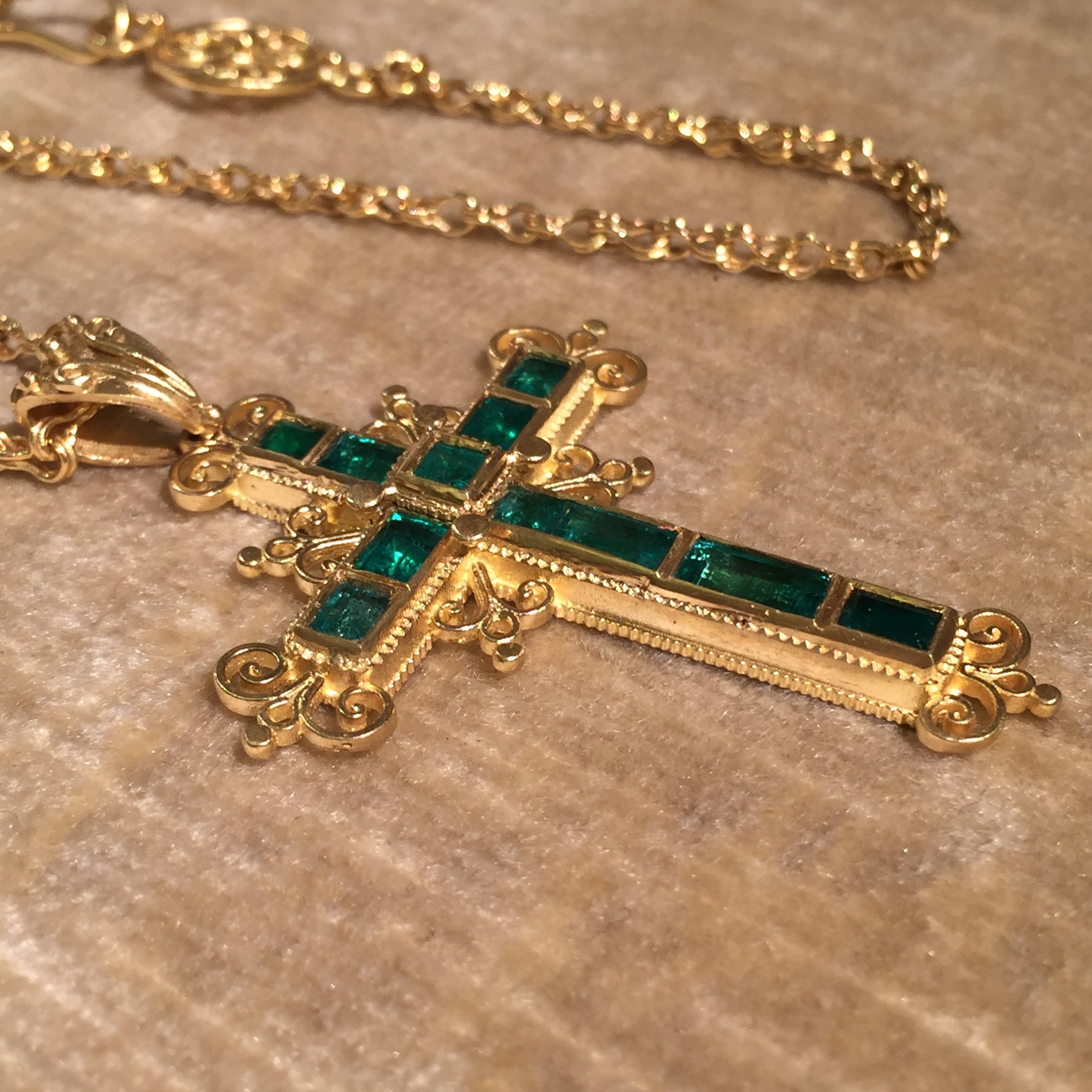
Images of the Crown of the Andes Cross being made at our workbenches.
Donna and the Crown of the Andes at the opening of Golden Kingdoms: Luxury and Legacy in the Ancient Americas, February 26, 2018 - The Metropolitan Museum of Art
Lucky for us, the crown is, in fact, currently available to view at The Met.
For those of you who aren't content just staring at this masterpiece from behind a wall of plexiglass, our Crown of the Andes cross-pendant is for sale *solely* at the new Donna Distefano atelier.


